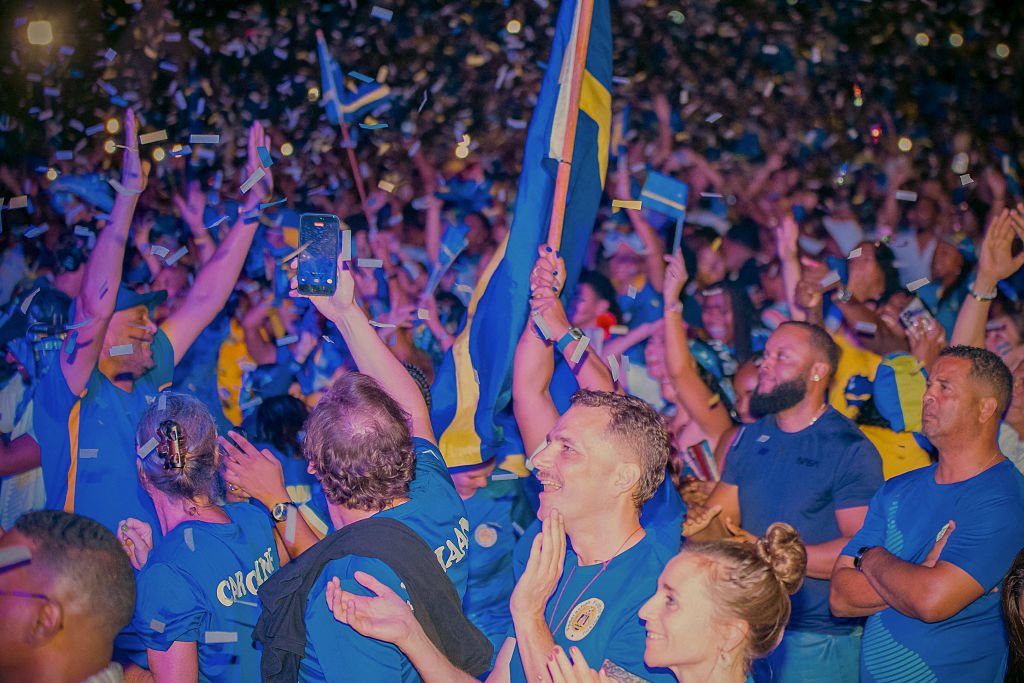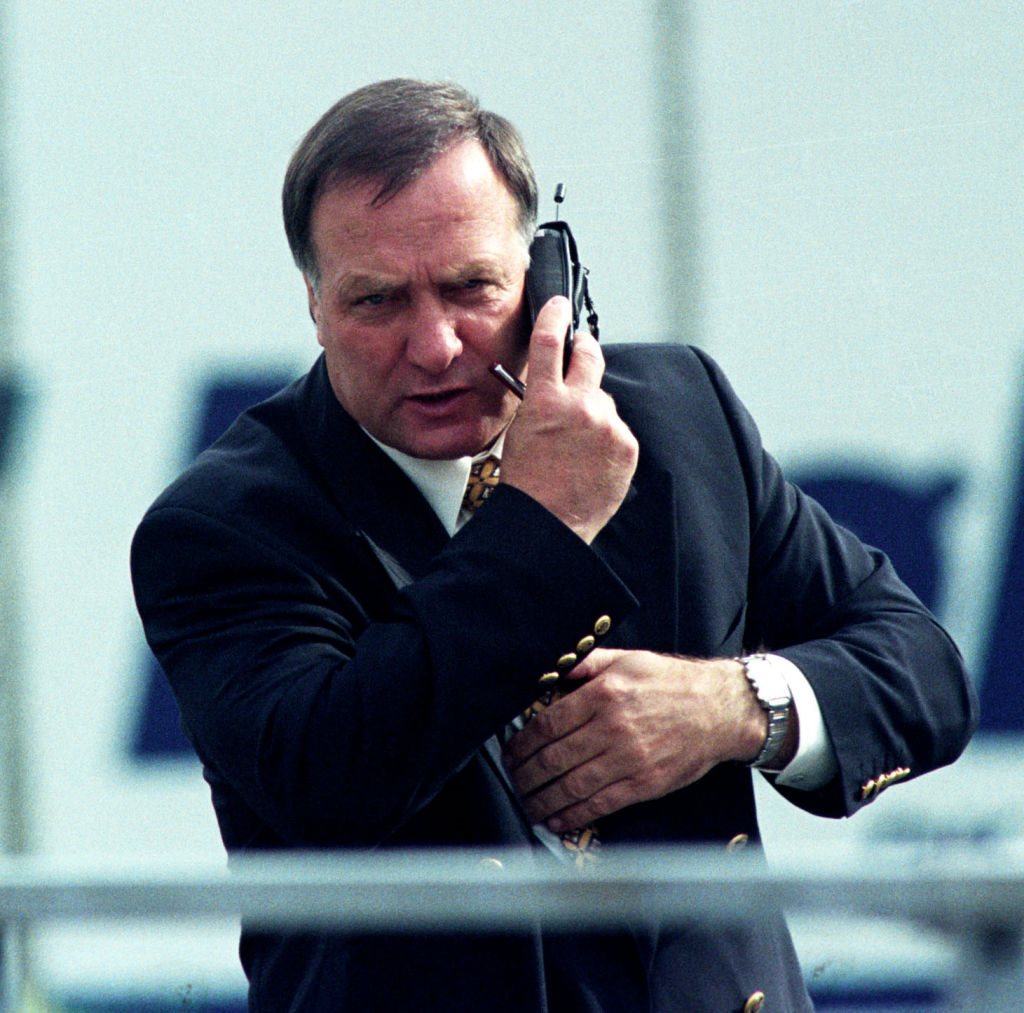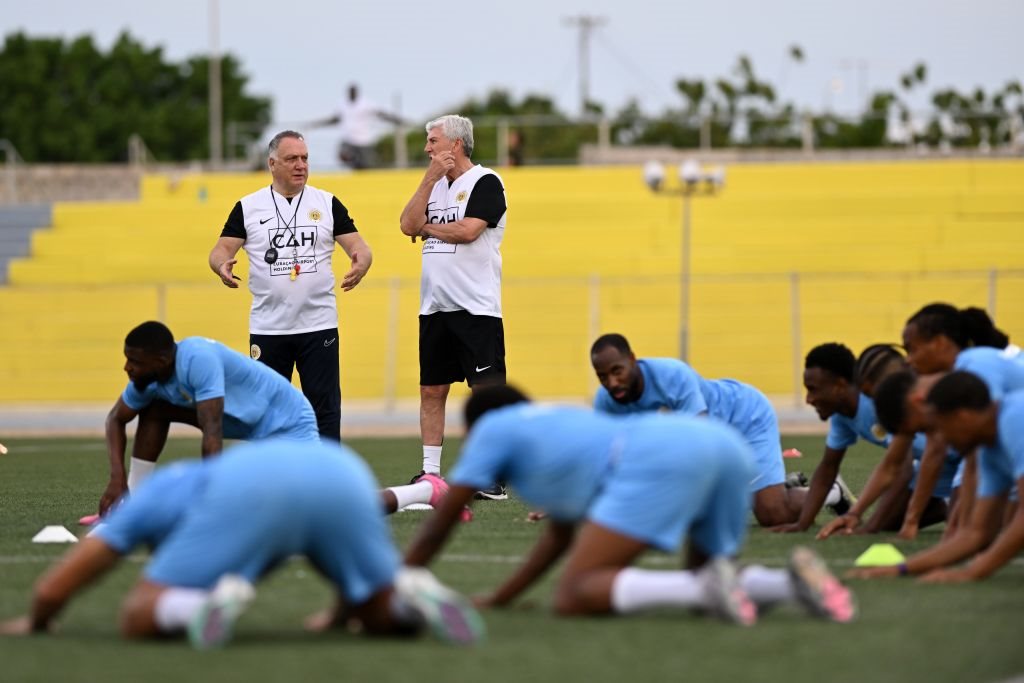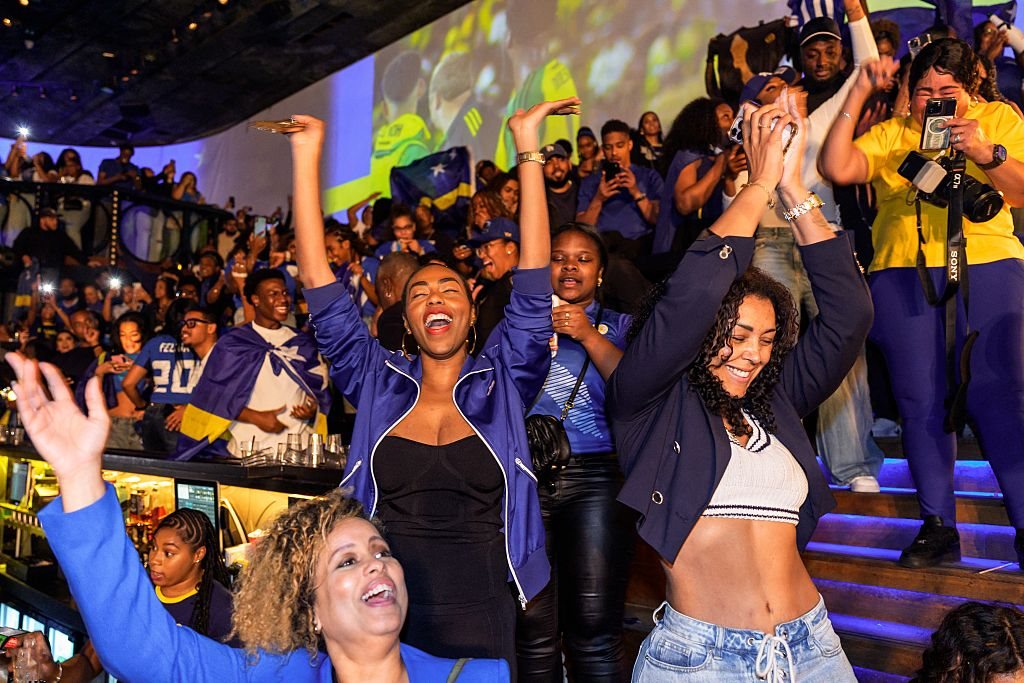“We are talking about the main surprise of the upcoming World Cup.”, — write: football.ua
We are talking about the main surprise of the upcoming World Cup.
Curacao is now the smallest country to ever make it to the World Cup. The previous record belonged to Iceland in 2018.
The smallest countries at the World Cup Year Population at the time of the tournament Curaçao 2026 185,000 Iceland 2018 350,000 Cape Verde 2026 525,000 Paraguay 1930 850,000 Trinidad and Tobago 2006 1.3 million
To support the team in the decisive match in Kingston, two chartered planes flew to Jamaica Stadium with the most dedicated fans – as captain Leandro Bacuna called them, “ultras”. But 35 thousand in the stands were a yellow-black sea in support of the hosts. Only a small island of the blue sector of Curacao bent its own: flags, chants, faith to the last.
Curacao head coach Dick Advokaat returned to the Netherlands a few days before the match because his wife fell ill. However, he followed the game remotely, was in touch with his staff – primarily assistant Dean Gorre – and after the final whistle sent a message to the team chat: “Congratulations. Unbelievable, fantastic! What an adventure!”.

And when this is said by a person who at the age of 78 has already experienced dozens of adventures in football, it means a lot.
This will be the third world championship for Advokaat. He led the Netherlands national team in the USA in 1994, and also worked with South Korea at the 2006 World Cup. Experience speaks for itself.
He himself was eager for this challenge and was the first to call the president of the Curacao Football Federation, Gilbert Martin. Two more experienced Dutch coaches were on the shortlist, one of them a former Manchester United coach.
“The first conversation with Dick was in August 2023,” says Martina. “I shared with him our vision. And he said: ‘Gilbert, if we can attract the right players, we can really go to the World Cup.’ Then I asked: ‘Can I use your name to attract sponsors?’ After all, a great name is hope and opportunities.”
That is why a famous coach was needed – there were three of them on the list. The first option was Bert van Marwijk, who led the Netherlands to the finals of the 2010 World Cup. He trained many current players in the U-15 and U-17 junior teams. But he replied: “Gilbert, I’m done with my career and I want to stay away. So no.”
Then I turned to Louis van Gaal, the former coach of Barcelona and Manchester United. He said:
“If I return to training again, then only in a team capable of becoming a world champion.” I have to respect that – we’re not at the same level yet. He wanted to win the tournament.”
Van Gaal stayed true to his reputation. He is 74 — he is younger than Advokaat, and even younger than van Marwijk (73).
“And then this happened: I got a call from Dick. He said: “I heard that Curaçao is looking for a head coach. I’m ready.” And I got goosebumps.”

Martina convinces: the football fire is still burning in Advokaat. “You would have seen him on the field – how much energy, passion, discipline he has.”
The connection with the Netherlands has deep roots. Curaçao has been under their colonial rule since the 17th century. And although it is now a separate country, it is still part of the Kingdom of the Netherlands. It was this past that Martina used when forming the current team.
In fact, only one player, Manchester United’s Tahit Chong, was born in Curacao. The rest are natives of the Netherlands with roots on the island.
The most famous among them is 34-year-old Leandro Bakuna, a former Aston Villa midfielder who currently plays for Bandirmaspor in Turkey. He has been playing for Curaçao since 2019, and it was in the match against Jamaica that he set a record of 68 matches for the national team. His brother Juninho, who previously played for Huddersfield and Birmingham City, is now at Gaziantep in Turkey. And Kenji Gorre — the son of assistant coach Dean — went through Manchester United’s academy and now plays for Israel’s Maccabi Haifa.
“It’s been a long road”— says Martina. — “It all started back in 2004, when the then president of the federation, Jean Francisco, said: ‘We can break through, we have the potential’. That’s when the idea of attracting players who play abroad came up. Before that, we relied only on local footballers who were not professionals. Since then, we have grown incredibly.”
Leandro Bacuna adds: “It all started with a dream – to go to the World Cup. We could invite players from the Netherlands, because we are Dutch Caribbean, we can have two citizenships.
At first we took those who were not at the level for the Dutch national team, but they could play for Curaçao. That’s how it all started. And today it is already a big story. We are proud of it.”

But behind the dry facts is the personal. Before the match against Jamaica he said: “We have a big family there – grandmas, uncles, everyone. They send us support every second. The atmosphere right now is just incredible.”.
Curaçao progressed through the second and third stages of the CONCACAF zone, first winning all four of their group matches against Haiti (who also eventually qualified for the World Cup), Saint Lucia, Aruba and Barbados. Then came two draws with Trinidad and Tobago, two wins over Bermuda, including a 7-0 thrashing away from home, followed by a win over Jamaica at home and a draw in the decider in Kingston.
Some combinations of this team look simply incredibly played. Juninho Bakuna explains: this is a consequence of the fact that most of them were brought up by the Dutch football school.
“We have very little time together during meetings, but it seems like many have been playing side-by-side for years.” says the 28-year-old midfielder. “We are one big family. And if you are a family off the field, you understand each other on the field as well. When you train together, you quickly begin to feel who wants what and how they play. This is one of our main advantages.”
He also adds: “Everyone knows Dick – he is a strong coach. The main change with his arrival is his authority. But the biggest changes are outside the field: preparation has become different, much more professional. And now everything is very clear on the field: “We have a result, we have to win. If you can’t win, don’t lose.”

The president of the federation, Gilbert Martin, was looking for just such a person, who officially heads the organization since April, but has been working in the system for a long time.
“I said: we need a coach who is able to build the game from the result”he explains. “In the club season, you can start weak, add after the winter break and become a champion at the end. But it doesn’t work like that in the national team. Here, every game is a final. And you need a coach who knows how to prepare the team for such situations. First – to win. If it doesn’t work out – at least not to lose. And Dick Advokaat is a master at this. Although he is many years old, he has no less energy and passion than in young people. He ignites everyone.”
In the last match against Jamaica, the main task was to avoid defeat. The match was not too spectacular, but incredibly tense. Jamaica hit the goal frame three times from set pieces, Curaçao counterattacked dangerously.
It seemed that at the end of the meeting, Jamaica would get a chance to save: the referee Ivan Barton pointed to the 11-meter penalty, and the stadium exploded. But VAR overturned the decision. After the final whistle, Jamaica coach Steve McClaren sat on the bench with his head down for a few more minutes. He announced his retirement at a news conference – although Jamaica still has a chance to qualify for the World Cup through an intercontinental play-off in March.
For Curaçao, a draw away from home meant direct entry to the World Cup.

“I never expected that we would actually be in the World Cup”said Leandro Bakuna on the eve of the match.
“I told Kenji Gorre that I had a dream about this moment – about two or three weeks ago. I couldn’t wait for the last two games. And now, as everything approaches, I sit in my room every day and think: ‘I want to get on the field, I want to practice, I want this game right now. I want to finish the case. I want to be there.”
And for the first time in history, Curacao is there. National team at the World Cup.
The Athletic
